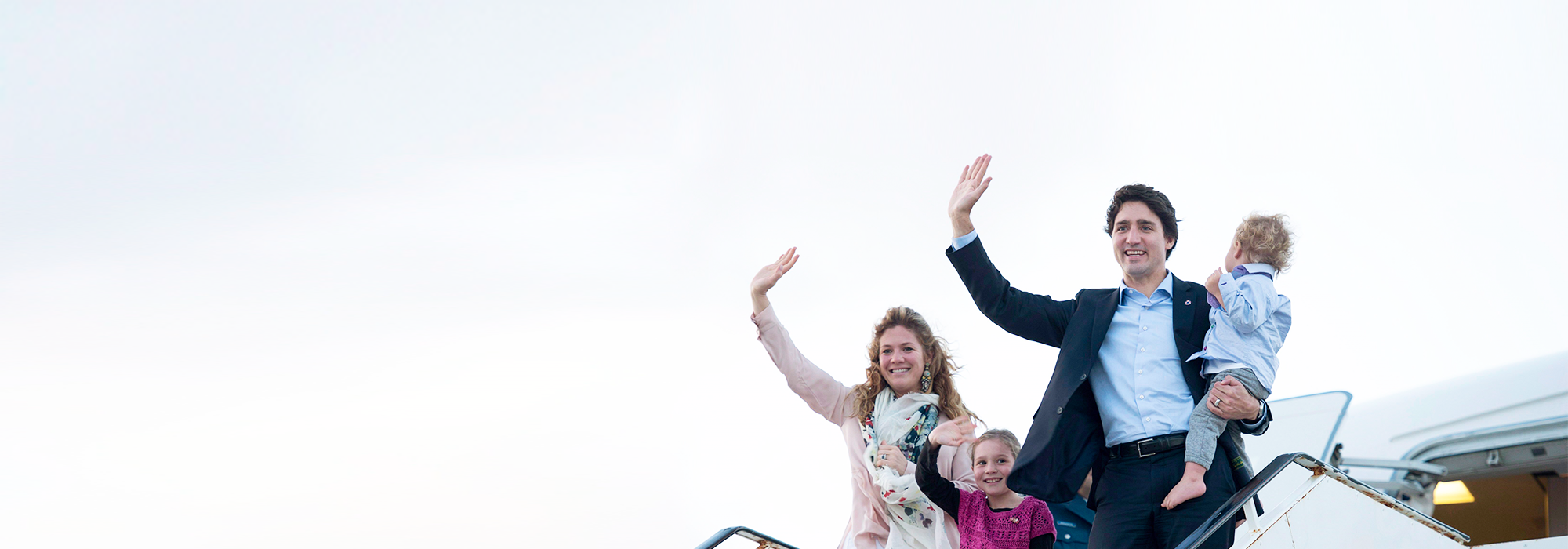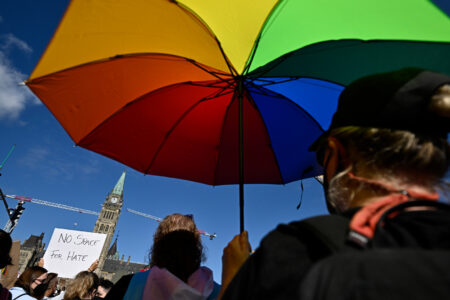
Remember the commercial for the Cadillac ELR Coupe a few years back, the one with the smarmy rich guy who makes fun of the French for taking so much vacation? “As for all the stuff, that’s the upside to only taking two weeks off in August, n’est ce pas?” he says to the camera, getting into the US$75,000 car, while the wife and kids lounge in the mansion.
The spot was cringeworthy, oh so American, we sniffed. But are we really about work-life balance, or does vacation still make us slightly guilty? You’ve got to wonder, after all the commentary around Prime Minister Justin Trudeau’s family vacation.
Two photos snapped of Trudeau without his shirt set off a flood of commentary about his love of publicity, about his lack of decorum. Would your next-door neighbour button up to go exploring a cave filled with water with his kids? One shudders to think what would happen if the PM was a woman: maybe we’d be reading about how her tankini at the cottage was really all just a marketing ploy.
The anger around Trudeau’s time off didn’t stop there. Bad jobs numbers came out. The Conservative Party responded with a social media campaign that featured his face on a milk carton, and the label “Last seen shirtless in the BC wilderness looking for photo opportunities.”
A man who had been preparing to set off a bomb off in a major Canadian city was killed by police in Strathroy, Ontario. Why wasn’t the PM back in his office to reassure the nation, some grumbled?
Anyone who has worked in or around politics knows what the life is like. There isn’t any real time off, the BlackBerry is always on, someone is always asking for something. Keeping marriages together is tough. The travelling over the course of a year is gruelling — the Prime Minister is set to travel to China for more than a week in late August and early September.
When he delivered his acceptance speech last October, Trudeau directed one comment (in French) to his kids: “We’re embarking on a new adventure together, and I can tell you that there will be difficult moments for you as the children of a prime minister, but you know Dad will be there for you.”
The politicians know what they sign up for, but then the politicians also try to carve out time where they can. Stephen Harper apparently hated travelling so much, he would forgo more sleep in foreign hotels so he could take the plane home sooner. (St. Petersburg and back in 18 hours, anyone?) Harper also would regularly go to his kids’ sporting events. Jean Chrétien went home for lunch with his wife most days when he was in Ottawa. Broadcaster Ben Mulroney recalled in a sweet column directed at Trudeau that he used to steal time with his father, PM Brian Mulroney, by watching the evening news with him.
Politicians aren’t alone in being desperate for some rest. Canada ranks very poorly for the amount of guaranteed vacation time given to workers: two weeks everywhere but in Saskatchewan, where it’s three. At the Canadian Bar Association’s legal conference last weekend, the crowd of notorious workaholics sat in on a session entitled “Tips for Happier, Healthier Lawyers,” where they were advised to schedule leisure time. Modern workplaces are having to adjust to millennials apparently wanting more time off.
The great irony of the criticism around Trudeau’s family vacation is that politicians keep talking about work-life balance, and specifically about how to attract more women to Parliament and to high-placed corporate jobs and boards. Jurisdictions around the world have changed the sitting hours of their legislatures to align with the school calendar and to eliminate night sittings.
One wonders what message women interested in federal politics drew from the coverage of the Trudeau family vacation: maybe “Don’t even think about taking time off with your kids.”
Photo: The Canadian Press/Adrian Wyld
Do you have something to say about the article you just read? Be part of the Policy Options discussion, and send in your own submission. Here is a link on how to do it. | Souhaitez-vous réagir à cet article ? Joignez-vous aux débats d’Options politiques et soumettez-nous votre texte en suivant ces directives.








